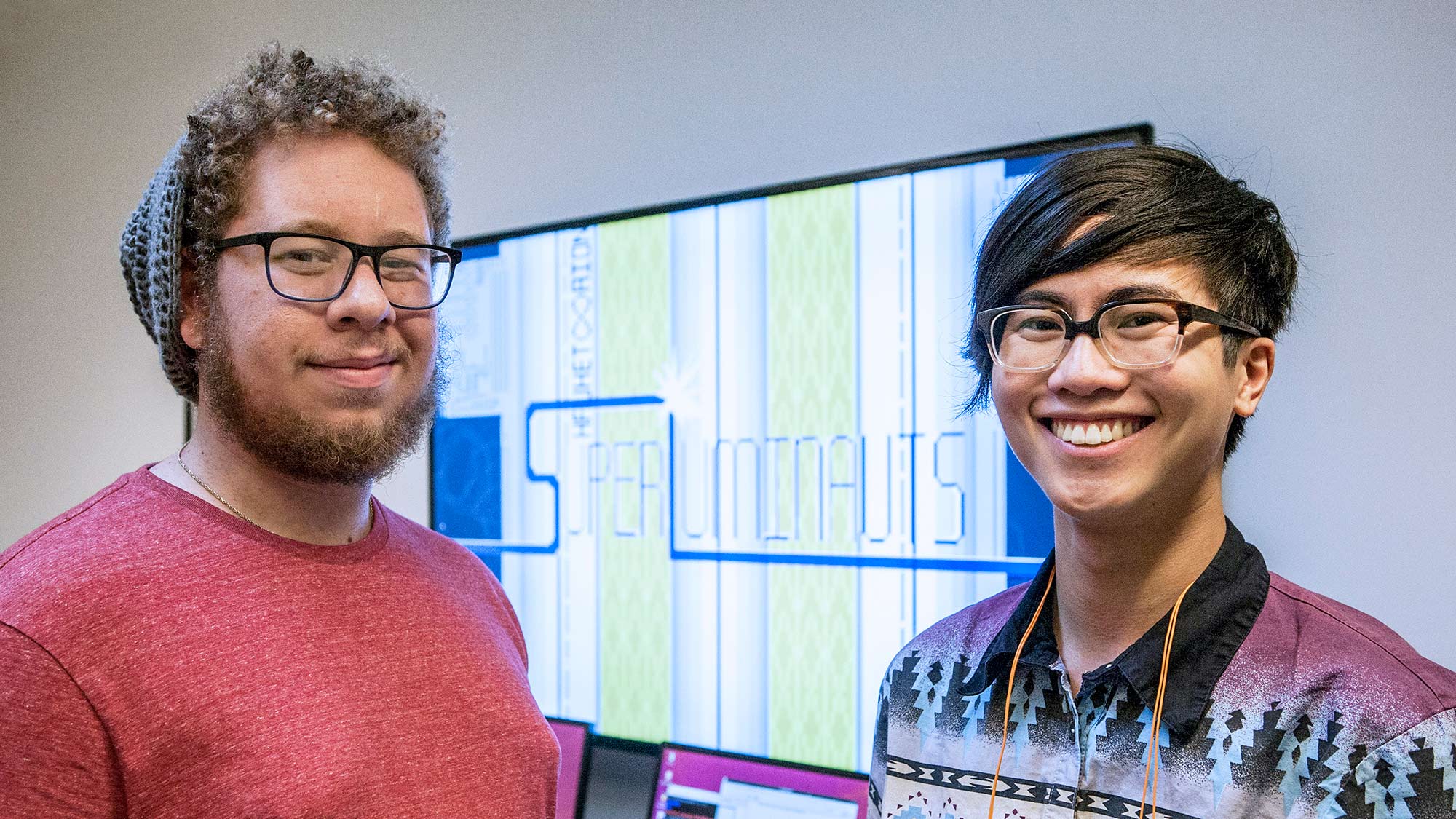SuperLuminautsTwo Vassar Gamers Launch Their First Game
SuperLuminautsTwo Vassar Gamers Launch Their First Game
At first glance, “SuperLuminauts” is a deceptively simple video game: Players fly four agile space ships, engaging in World War I-style “dogfights” in outer space. But the game, created by Vassar alum Thomas Lum ’17 and current student Ernie Suarez ’18, is a little more intricate than that.
“We play around with space-time a bit,” says Lum, who wrote the code for “SuperLuminauts.” During

Lum and Suarez spent more than eight months conceiving, testing, developing and re-developing the game, and they launched it for public sale Sept. 1. It’s PC- and Mac-compatible and available for download (price: $10) on the popular video-gamers’ website, steampowered.com.
The game’s creators say there’s no way to predict in advance whether it will be a financial success. But if the reception from the general gaming public is anything like the one “SuperLuminauts” received at a recent gamers’ convention in New York City, Lum and Suarez may be in for a substantial payday. “We brought the game to
Lum and Suarez are both from New Jersey, coming to Vassar a year apart. But they didn’t meet until 2015 when one of Suarez’s former roommates mentioned that he knew someone who was just as fanatical about video games as he was. “Tom was a computer science coach, so I went to one of his office hours and he didn’t have any students when I got there, so we started talking,” Suarez recalls.
Within 10 minutes, it was as if the two were life-long friends who shared a love of video games. But neither Lum nor Suarez came to Vassar with any intention of creating such games. Lum chose the college for its strength in the humanities; he planned to major in English or drama. Suarez always planned on majoring in psychology. But Lum took Computer Science 101 in his freshman year and “fell in love with it.” He graduated last year with a double major in computer science and cognitive science. Suarez will graduate next spring as a psychology major, but he took a programming class last year and learned a lot more about coding for video games from Lum.
Learning how to write code is obviously a
Suarez agrees. “We’d ‘spitball’ ideas for story lines for our game on whiteboards for hours,” he says, “and that’s theater, that’s drama.”
Of course, every time they changed the narrative of the game, Lum had to return to his computer, scrap some of the old
“Watching kids having so much fun and seeing their moms having to pull them away from the game made all our work worthwhile.”
Suarez says the friendship between the two
Suarez and Lum weren’t the only ones assessing the game as it was developed. “A lot of our friends would stop by and play the game and offer their suggestions,” Suarez says. “Lots of people contributed to the final product.”
Now that the final product is on the market, its creators say they’re satisfied with what they’ve done, whether or not “SuperLuminauts” becomes a hit. “If a few people out there really enjoy the game,” Lum says, “that’s enough for us.”